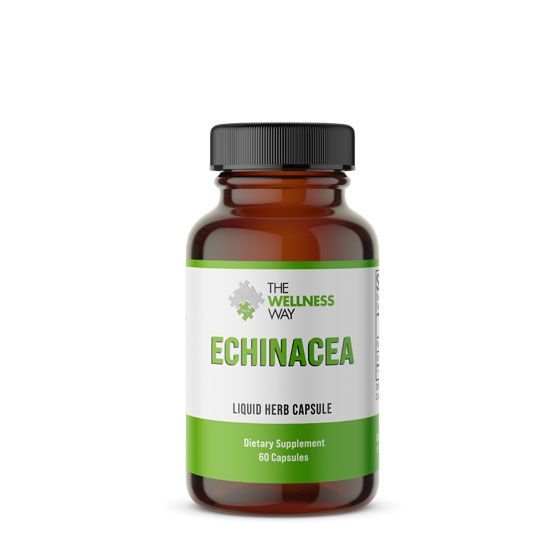Organic Echinacea (Echinacea angustifolia and Echinacea purpurea) is an herb that has become very well-known in recent years for its antiviral, antifungal and antibacterial properties. It has been in use for hundreds of years prior by Native Americans to treat snake bites, fevers and old, stubborn wounds. Early settlers soon adopted the plant as a home remedy for colds and flus, and it became a staple herb soon after.
With the immune system taking center focus for its widespread use, some of the scientific details makes it obvious why. It is shown to stimulate phagocytosis by neutrophils and can increase WBC production. While it does not kill microbes in and of itself, it re-establishes the innate immune response by stimulating natural killer cell action and inducing cytokine production. It also inhibits prostaglandin production, increases tumor necrosis factor and nitric oxide, and it binds strongly to CB2 receptors in immune tissue.
Organic Echinacea has many important constituents that provide a diverse range of health benefits. Some of the most notable constituents are alkylamides, caffeic acid derivatives (cichoric acid), polysaccharides, polyacetylenes and flavonoids including quercetin and kaempferol. These constituents have been well-researched and shown to influence the following physiological actions, including:
Immuno-stimulant
Immuno-modulator
Lymphatic adaptogen
Depurative
Antiviral
Antibacterial
Anti-inflammatory
Antioxidant



